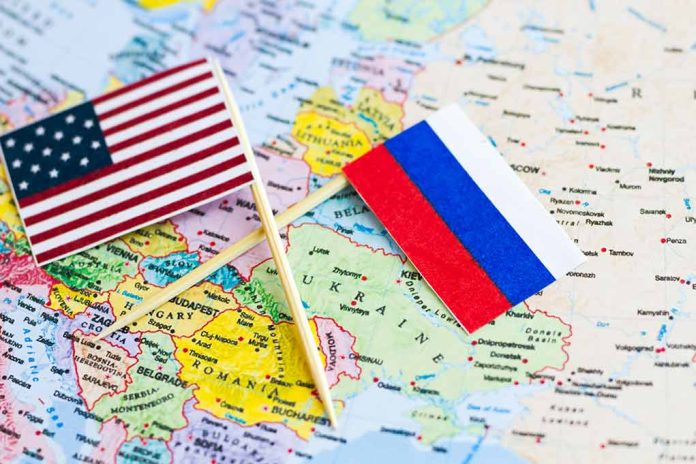
Harvard researcher Kseniia Petrova, who fled Russia after protesting Putin’s Ukraine war, now faces up to 20 years in prison over undeclared frog embryos as the Biden-Harris administration pursues felony smuggling charges in what legal experts call a highly unusual escalation.
Key Takeaways
- Russian Harvard researcher Kseniia Petrova faces felony smuggling charges carrying up to 20 years in prison for allegedly failing to declare frog embryos intended for scientific research
- Petrova has been detained in Louisiana since February after her J-1 visa was revoked, despite her lawyers arguing the samples were non-living specimens that didn’t require declaration
- Legal experts consider the timing of criminal charges suspicious, as they were filed three months after the alleged violation and immediately after a favorable bail hearing was scheduled
- The case has sparked fear within the international academic community about the safety of studying and researching in the United States
From War Protester to Smuggling Suspect
Kseniia Petrova, a Russian researcher who worked at Harvard Medical School after fleeing her home country for protesting Vladimir Putin’s war in Ukraine, now finds herself at the center of an escalating legal battle with the U.S. government. What began as a customs issue regarding undeclared frog embryos at Boston’s airport has spiraled into felony smuggling charges that could result in up to 20 years imprisonment. Petrova has been detained in Louisiana since mid-February following the cancellation of her J-1 work-study visa, with federal prosecutors alleging she knowingly imported biological specimens without proper permits.
Petrova’s attorneys maintain that the specimens in question were non-living, chemically fixed frog embryos that didn’t require declaration. The researcher herself claims she didn’t intentionally lie to customs officers and was uncertain about declaration requirements. The case has taken numerous turns, including a recent video court appearance from jail in Monroe, Louisiana, where a federal judge announced the charges against her and approved her transfer to Massachusetts for further proceedings.
Suspicious Timing Raises Questions
Legal experts have raised concerns about the government’s handling of Petrova’s case, particularly the unusual decision to bring criminal charges at this stage of an immigration proceeding. Most telling is the timing of the charges, which were filed on May 12 and unsealed after a hearing that questioned the government’s treatment of Petrova. The announcement came just as her legal challenge to detention appeared to be progressing favorably, with a bail hearing scheduled for May 28.
“The timing of Kseniia’s transfer out of ICE custody into criminal custody is especially suspect because it happened right after the judge set a bail hearing for her release. The charge, filed three months after the alleged customs violation, is intended to make Kseniia look like a criminal to justify their efforts to deport her,” said Gregory Romanovsky.
When asked by the judge during her video hearing if she understood the proceedings, Petrova’s response was a simple “Yes, I understand” – belying the complex legal maze she now faces. Her attorneys have argued that a simple fine could have been issued instead of detention, and she could have returned to France rather than face the draconian measures currently being employed against her.
Immigration Overreach and Academic Concerns
The case has sparked significant concern within academic circles, with many international students now questioning the safety of studying in the United States. Judges involved in Petrova’s case have already begun questioning the authority of immigration officials to revoke her visa. During recent proceedings, one judge pointedly questioned the legal basis for a Customs and Border Protection officer’s unilateral decision to cancel Petrova’s visa.
“Where does a CBP officer have the authority, on his or her own, to revoke a visa? It’s got to be somewhere, because there’s no way that person has kind of an unlimited determination,” said Reiss.
Meanwhile, U.S. Attorney Leah Foley defended the government’s position, emphasizing that even highly educated individuals must adhere to American laws: “The rule of law does not have a carve out for educated individuals with pedigree.” This hard-line stance reflects the administration’s broader approach to immigration enforcement, which has faced numerous legal challenges from foreign students and academics in recent years. For Petrova, who once fled political persecution in Russia, the irony of potentially facing imprisonment in the United States over scientific specimens is particularly bitter.





